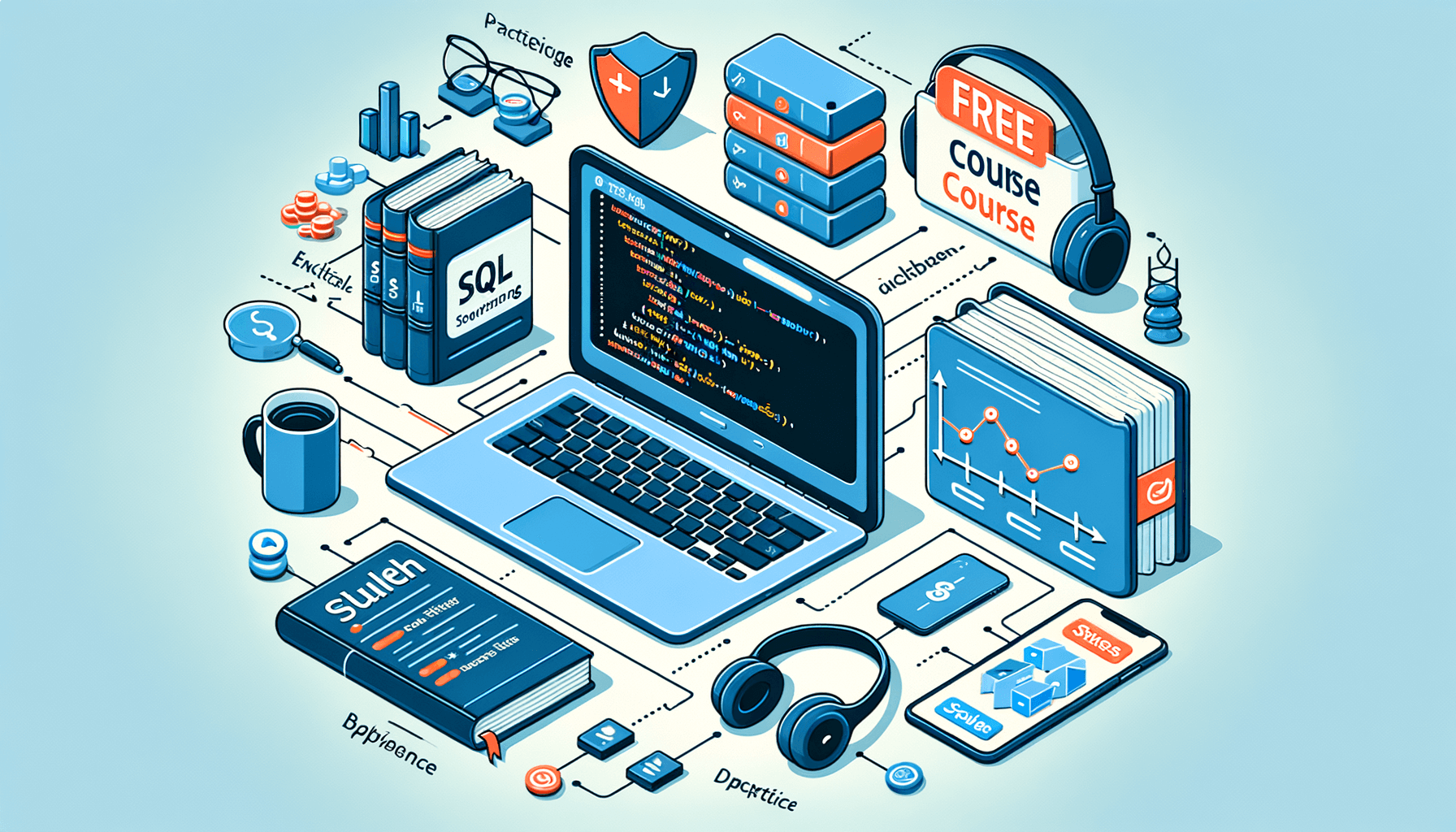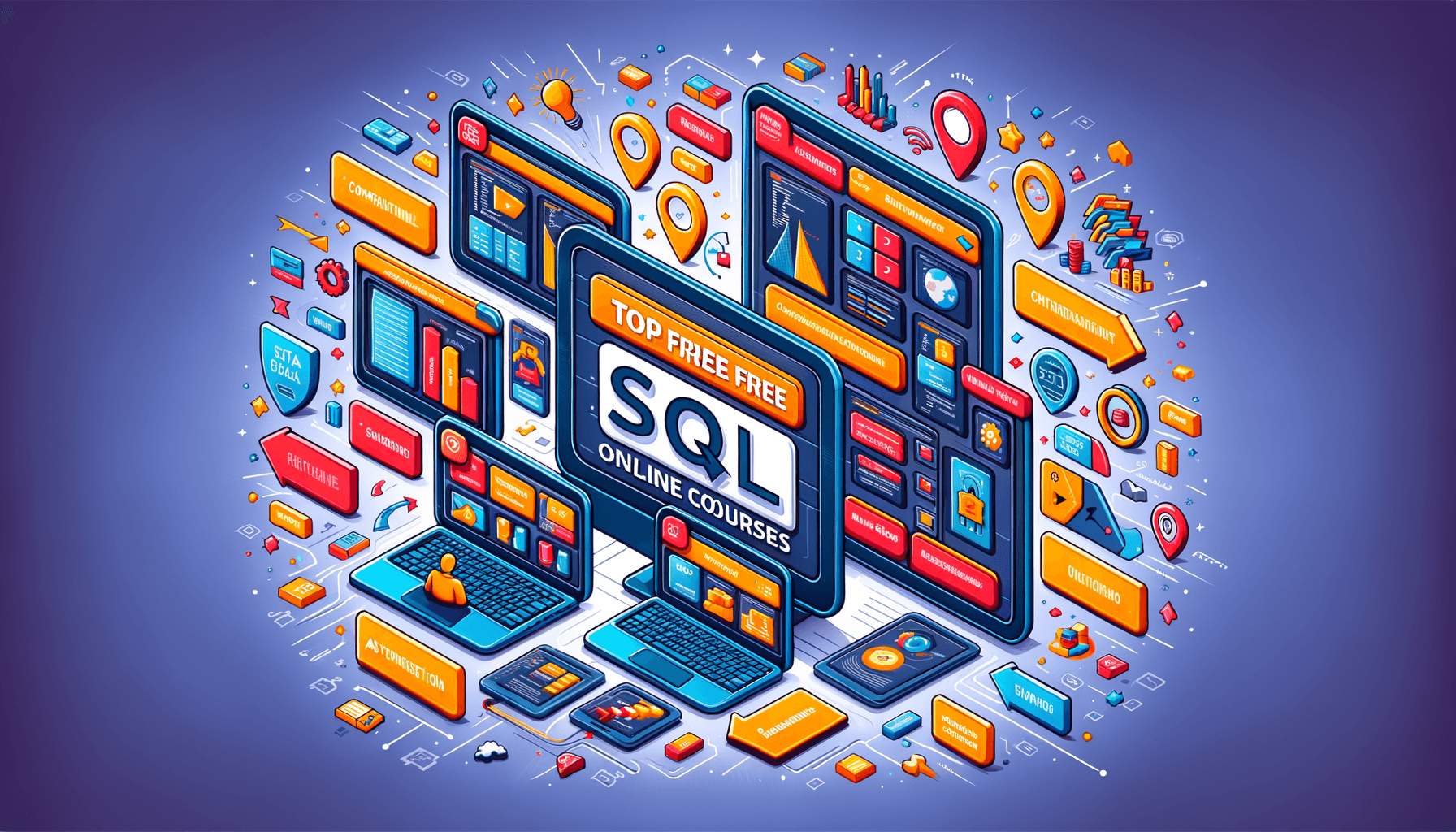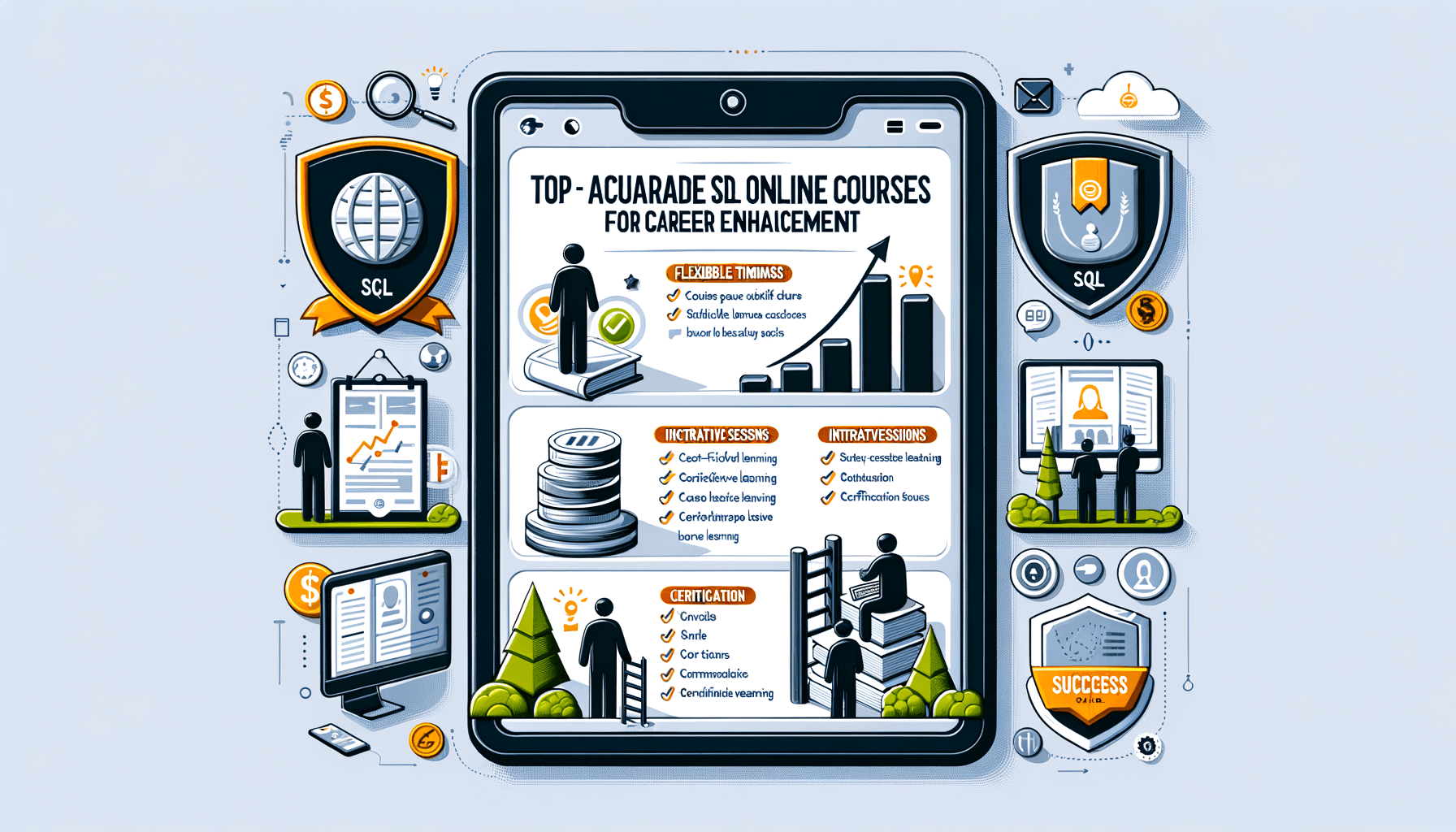A big variety of articles and resources

Master SQL with Our Free SQL Course Online
 Sia Author and Instructor
Learn SQL
Sia Author and Instructor
Learn SQL
8 minute read
Are you ready to level up your data skills? Our free online SQL course is perfect for beginners and those looking to improve their SQL knowledge. SQL is a powerful tool for managing and analyzing data, and our course will guide you through everything from the basics to advanced techniques. Whether you're interested in data management, business intelligence, or just want to learn a new skill, this course has something for everyone.
Key Takeaways
- Learn the basics of SQL and why it's important for managing data.
- Explore advanced SQL techniques like subqueries, joins, and window functions.
- See how SQL is used in real-world scenarios, including business intelligence and data analysis.
- Get tips on optimizing SQL queries for better performance, including indexing and handling large datasets.
- Discover the structure of our free online SQL course, including interactive modules and certification opportunities.
Understanding the Basics of SQL
What is SQL?
SQL, or Structured Query Language, is a standard language used to communicate with databases. It allows us to create, read, update, and delete data stored in a database. SQL is essential for managing and manipulating data efficiently.
Importance of SQL in Data Management
SQL plays a crucial role in data management. It helps us organize and retrieve data quickly. Whether you're working with small datasets or large databases, SQL makes it easier to handle data. Mastering SQL can open up many opportunities in data-related fields.
Core SQL Commands
There are several core SQL commands that form the foundation of SQL. These include:
- SELECT: Retrieves data from a database.
- INSERT: Adds new data to a database.
- UPDATE: Modifies existing data in a database.
- DELETE: Removes data from a database.
Understanding these commands is the first step to becoming proficient in SQL.
Exploring Advanced SQL Techniques
Subqueries and Nested Queries
Subqueries and nested queries are powerful tools in SQL that allow us to perform complex operations within a single query. These techniques enable us to break down complicated problems into smaller, more manageable parts. Mastering subqueries can significantly enhance your SQL skills.
Joins and Unions
Joins and unions are essential for combining data from multiple tables. While joins merge rows based on a related column, unions stack rows from different tables. Understanding the differences and applications of these operations is crucial for effective data management.
Window Functions
Window functions provide a way to perform calculations across a set of table rows related to the current row. These functions are useful for tasks like running totals, ranking, and moving averages. Learning window functions can greatly improve your ability to analyze data efficiently.
Advanced SQL techniques are not just for experts; they are accessible to anyone willing to learn and practice. With dedication, you can master these skills and apply them to real-world scenarios.
Practical Applications of SQL in Real-World Scenarios
Database Design and Normalization
Designing a database is a crucial step in managing data efficiently. We use SQL to create tables and define relationships between them. Normalization helps in organizing data to reduce redundancy and improve data integrity. This process involves dividing large tables into smaller ones and linking them using keys.
Data Retrieval and Analysis
SQL is essential for retrieving and analyzing data. As a data analyst, you can use SQL queries to extract specific information from large datasets. This skill is vital for making informed decisions based on data trends and patterns. We often use SELECT statements to fetch data and JOIN clauses to combine data from multiple tables.
SQL in Business Intelligence
In the realm of business intelligence, SQL plays a pivotal role. It helps in generating reports and dashboards that provide insights into business performance. By using SQL, we can transform raw data into meaningful information that supports strategic planning and decision-making.
Mastering SQL opens up numerous opportunities in various fields, from data analysis to business intelligence. Our introduction to SQL course offers hands-on SQL training with industry insights. Instructor Eric Vanier specializes in database performance optimization and education.
Optimizing SQL Queries for Performance
Indexing Strategies
To make your SQL queries run faster, we need to use indexing. Indexes help the database find data quickly without scanning every row. Using the right indexes can drastically improve query performance. However, too many indexes can slow down data updates, so we must find a balance.
Query Optimization Techniques
Optimizing queries involves writing them in a way that the database can execute them efficiently. We should avoid using SELECT * and instead specify only the columns we need. Additionally, using joins instead of subqueries can often speed up performance. Here are some tips:
- Use WHERE clauses to filter data early.
- Avoid complex calculations in the SELECT statement.
- Use LIMIT to restrict the number of rows returned.
Handling Large Datasets
When dealing with large datasets, performance can become an issue. Partitioning tables can help manage large volumes of data by breaking them into smaller, more manageable pieces. Batch processing can also be useful for handling large amounts of data without overwhelming the system.
Efficiently managing large datasets often requires a combination of strategies, including indexing, query optimization, and partitioning.
Getting Started with Our Free SQL Course Online
Course Structure and Curriculum
Our free SQL course is designed to help you learn the basics at your own pace. The curriculum is divided into easy-to-follow modules, each focusing on a specific aspect of SQL. From introductory lessons to more advanced topics, our course covers everything you need to become proficient in SQL.
Interactive Learning Modules
We believe that the best way to learn SQL is by doing. That's why our course includes interactive learning modules that allow you to practice what you've learned in real-time. These modules are designed to reinforce your understanding of key concepts and help you apply them in practical scenarios.
Certification and Career Opportunities
Upon completing our course, you'll receive a certificate that you can add to your resume or LinkedIn profile. This certification can open up new career opportunities in data management, business intelligence, and more. Sign up for SQLSkillz today and take the first step towards mastering SQL!
Tools and Resources for SQL Learners
Recommended SQL Editors and IDEs
To get the most out of your SQL learning experience, it's important to use the right tools. We recommend starting with user-friendly SQL editors and IDEs. These tools can help you write, test, and debug your SQL code more efficiently. Some popular options include:
- MySQL Workbench: A comprehensive tool for database design and administration.
- DBeaver: A versatile SQL client that supports multiple databases.
- SQL Server Management Studio (SSMS): Ideal for managing Microsoft SQL Server databases.
Useful Online Resources and Communities
Learning SQL is easier when you have access to a variety of online resources and communities. These platforms offer tutorials, forums, and expert advice to help you along the way. Here are some valuable resources:
- Stack Overflow: A popular forum where you can ask questions and get answers from experienced developers.
- W3Schools: Offers free tutorials and exercises to practice SQL.
- SQLZoo: An interactive platform with exercises to test your SQL skills.
Books and Publications for Further Reading
For those who prefer learning through reading, there are several excellent books and publications on SQL. These resources provide in-depth knowledge and practical examples to enhance your understanding. Some recommended books include:
- "SQL for Dummies" by Allen G. Taylor: A beginner-friendly guide to SQL.
- "Learning SQL" by Alan Beaulieu: Covers the basics and advanced topics in SQL.
- "SQL Performance Explained" by Markus Winand: Focuses on optimizing SQL queries for better performance.
To jumpstart your SQL journey, consider our free introductory lessons with hands-on projects, personalized support, and industry insights. Our instructor, Eric Vanier, offers expertise in SQL, database optimization, and training programs.
Learning SQL can be a game-changer for your career. Our website offers a variety of tools and resources to help you master SQL, from beginner to advanced levels. Whether you're just starting out or looking to refine your skills, we have something for everyone. Visit our site today to explore our courses and start your journey to becoming a SQL expert!
Conclusion
In conclusion, our free SQL course online is a great way to learn SQL. It is designed to be easy to follow and understand, even if you are new to programming. By taking this course, you will gain valuable skills that can help you in many different careers. Whether you want to work in data analysis, software development, or any other field that uses databases, knowing SQL is a big advantage. So, take the first step today and start learning SQL with us. You will be glad you did.
Frequently Asked Questions
What is the duration of the free SQL course?
The course typically takes about 4 to 6 weeks to complete, but you can learn at your own pace.
Do I need any prior knowledge before taking this SQL course?
No, this course is designed for beginners. You don’t need any prior knowledge of SQL or databases.
Will I get a certificate after completing the course?
Yes, you will receive a certificate of completion once you finish all the modules and pass the final assessment.
Are there any interactive elements in the course?
Yes, the course includes interactive quizzes and hands-on projects to help you practice what you learn.
Can I access the course materials after completing the course?
Yes, you will have lifetime access to all the course materials, so you can revisit them anytime.
Is there any support available if I get stuck?
Yes, you can reach out to our support team or join our community forums to get help from instructors and peers.
Related Articles

Find the Best SQL Online Course for Free Today
9 minute read

How to get a job doing SQL?
12 minute read





